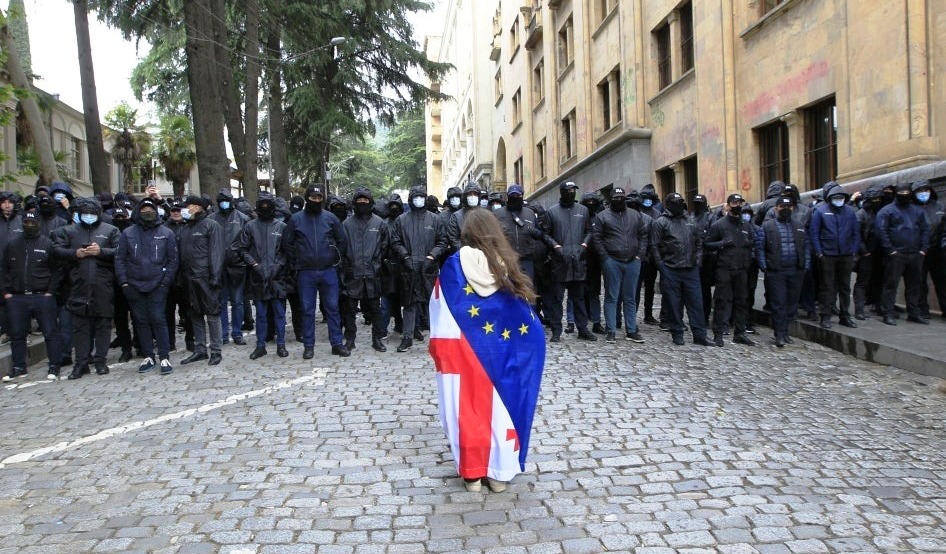Political tension in Georgia continues, once again reaching a boiling point. Very soon, the country will hold municipal elections. True, this event cannot compare in scale to parliamentary elections, but the situation now is somewhat different.
After the opposition’s defeat in the parliamentary elections a year ago (according to official results, which the opposition does not recognize), amid street protests and a parliamentary boycott, the failure to achieve their main goal — a change of power — makes waiting another four years seem too long. Therefore, the radical opposition is tying its hopes to the upcoming October 4 municipal elections.
But the tactics have changed: the main opposition force, the United National Movement, and the “Coalition for Change” (which the government also refers to as the UNM), will no longer participate in the elections, choosing instead the street and protest as their battlefield. They hope that large numbers of people will come out and fulfill their cherished plan. Their dream is one: the “peaceful overthrow” of Georgian Dream.
How Should a Revolution Take Place?
How can a revolution, coup, or overthrow actually happen? These terms are tossed around freely, but the reality is different. The people cannot take up arms or storm the government with shovels and sticks. The authorities have already endured mass protests, dispersed them, and somehow managed to move forward.
Paatа Burchuladze, leader of Rustaveli Avenue, told PalitraNews:
“On October 4, everyone who wishes will come out, at least 200–300 thousand people. Invitations will be distributed hand to hand and placed at doors: ‘On October 4 at 16:00, I invite you to Rustaveli Avenue for the peaceful overthrow of Ivanishvili’s regime.’
Until now, 200,000 people would gather, shout ‘set new elections,’ and then go home. On October 4 it will not be like that. We are not leaving! Everything begins and ends on October 4. On that day, we will achieve what we want.”
Irakli Nadiradze, one of the UNM leaders, said:
“October 4 will be the day of a peaceful revolution. And do you know what kind of peaceful revolution it will be? Not a single hair on Irakli Kobakhidze’s head will be touched. The corrupt government must leave by way of peaceful overthrow.”
Paata Manjgaladze of Strategy Aghmashenebeli added:
“The regime is afraid, therefore there will be many provocations. For me, October 4 is judgment day, when the Georgian people will put Ivanishvili’s regime on trial for its crimes against the country. The main judge will be the Georgian nation, and the verdict will be the people’s victory.”
Analysts’ Opinions
Analyst Irakli Melashvili told Fortuna:
“Ask Khabeishvili and Burchuladze how this so-called revolution is supposed to happen. I cannot imagine anything that would lead to a change of power. Revolutions do not happen this way. They need leaders, and I do not see any here. Nor do I sense the public mood for it. These two parties lack revolutionary resources, just like all others. Boycotting the elections was a mistake. Winning Tbilisi would have been a major blow to Georgian Dream. Terms like ‘peaceful overthrow’ are ridiculous — there is nothing behind them, just empty words. It is unserious.”
Vakhtang Dzabiradze told Resonance:
“I do not see Georgian society today as ready for a massive, unprecedented, peaceful struggle against the government. Why did they set the rally for October 4, and not the 3rd or 6th? Why make it coincide with local elections? If they can mobilize such numbers, why not do it earlier or later? I am far from thinking that on October 4 crowds will pour into the streets, the government will flee to the airports, and power will be handed to the opposition. At best, there will be a large rally. Holding it on election day only plays into the government’s hands.”
Analyst Viktor Kipiani also commented:
“Declaring October 4 as the date of overthrow shows how unseriously some politicians treat political processes. Calls for overthrow may sound emotionally appealing but are legally and politically reckless. Change cannot come by such empty declarations.”
Opposition Rallies and International Concerns
On September 13, the opposition held a rally that many considered a rehearsal for October 4. It passed peacefully. From Tbilisi State University’s First Building to the parliament, opposition leaders marched alongside former president Salome Zurabishvili. Analysts say this rally offers some indication of what to expect on October 4.
Some suggest that the opposition’s internal disputes are largely formal, with a two-pronged strategy combining parliamentary participation and street pressure. Others, like Melashvili, reject this, saying the UNM aims to restore a polarized system and push aside parties like Lelo and Gakharia’s movement.
Western partners remain cautious. In July, the European Parliament adopted another resolution on Georgia, declaring that the upcoming municipal elections cannot be considered free and fair due to the imprisonment of key opposition leaders. Initially, the government did not invite OSCE/ODIHR observers. Only later, less than a month before the elections, did it send an invitation, but the organization declined, citing insufficient time for preparation and meaningful observation.
Historical Parallels
Famous Georgian poet Ioseb Noneshvili once wrote:
The sun rose red,
Or is it the color of flags?
An October morning has dawned,
Today is November 7…
He wrote this about the October Revolution of 1917. Today, in Georgia, “October Revolution” is once again a topical phrase. Soon it will become clear: will the sun rise red (the opposition’s color), or will everything remain blue?

